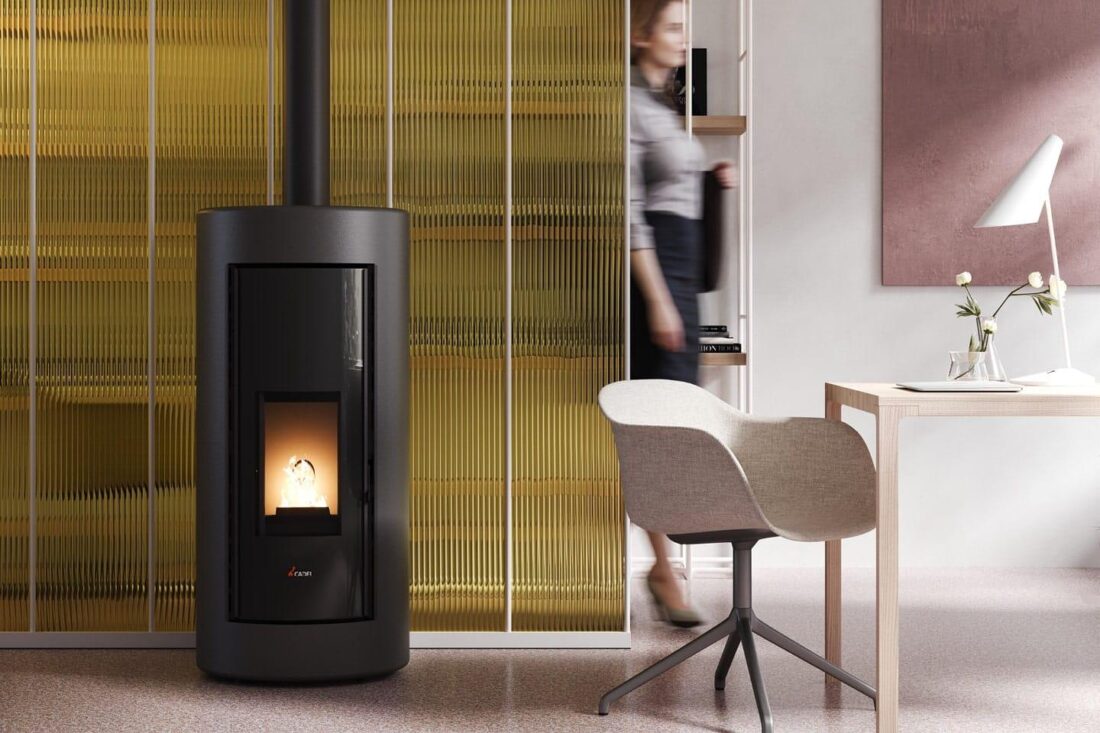Heating the home plays a key role in maintaining its livability. Consequently, it can present a high cost, particularly in colder months. However, there are some more cost-effective options available; pellet heaters, for example. These home heating appliances offer a reasonably priced yet eco-friendly way to warm your home.

Read on to explore whether pellet stoves are economical.
What is a pellet heater?
A pellet heater is an appliance that burns pellets instead of firewood to heat the home. Pellet heaters boast the highest fuel to heat conversion efficiency of the range of home heaters today. In addition, these devices produce little to no smoke and minimal ash amounts.
The secret behind a pellet heater’s efficiency lies in its fuel. Particularly the pellet quality. These pellets are a product of compressed wood residue left over after wood production. By mixing this residue with other combustible waste, manufacturers then form the mixture into finger-sized pellets before loading them in bags of varying weights.
A complete breakdown of pellet composition presents a combination of sawdust, dry organic waste, wood chips and crop residue. This composition makes them a very eco-friendly fuel option due to such factors as:
Minimal emissions
As a tree by-product, wood is a carbon-neutral heat source. This characteristic reflects the carbon every tree absorbs in the time before it is cut. However, freshly cut wood often contains moisture and plant sap that results in the production of dirty smoke while burning.
On the other hand, pellets are a product of dry wood shavings that contain no more than 8% moisture. In addition, the lack of sap and tar prevents the formation of creosote and oily residue when burning. As a result, using pellets affords a cleaner burn than any other solid fuel source available.
Therefore, opting for pellets as a home heating source allows you to avoid electricity sourced from fossil-fuelled power stations and even gas. Alternatively, you can use pellets in your woodfired pizza oven to prevent the infusion of smoky flavours into your food.
Renewable energy source
The primary component of pellets is waste left over after wood processing is complete. In addition, manufacturers use other dry organic waste like tree bark, crop residue and nutshells as additional pellet ingredients. Therefore, pellet manufacture constitutes a form of renewable fuel source that enhances forest conservation. Pellets are an example of valuable eco-friendly waste management solutions that allows you to maximise the recycling and repurposing ideals.
High heat output
The pellet manufacturing process compresses them into the smallest possible size. As a result, pellets become dense combustible materials that significantly fuel the heat conversion rate. This value stands at more than 90%, with the additional benefit of minimal waste production where pellets have only 0.5 per cent ash content.
This dense compression lets you load more pellets into your heater when needed. However, this is not always the case, as the high heat conversion rate means you only require a few pellets to maintain comfortable temperature levels.
Pellet heaters allow you to benefit from the best of both worlds. You get enough heat to keep your home comfortable while caring for the environment when you use one.




